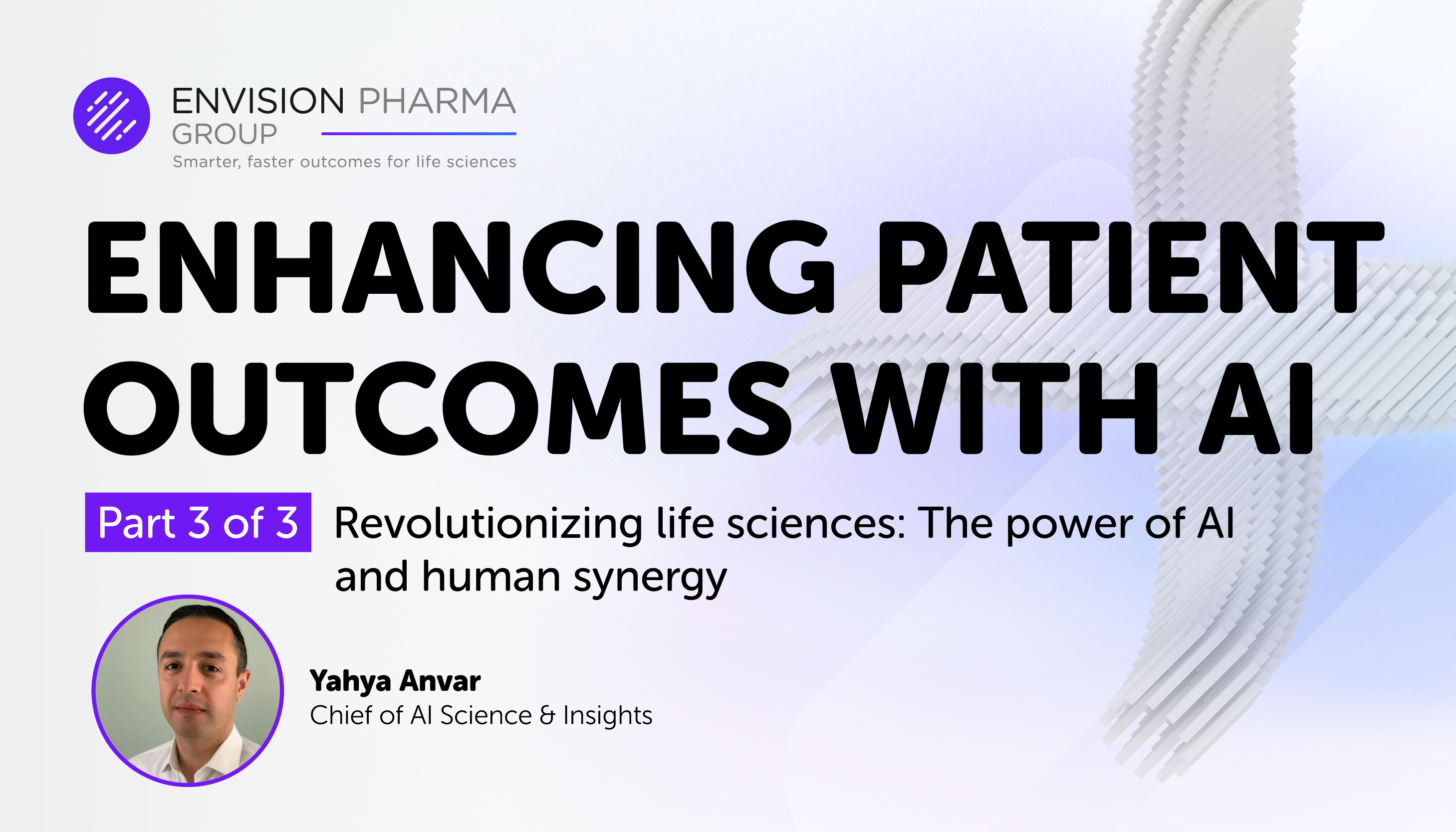This is the final entry of a three-part series from OKRA.ai Chief of AI Science & Insights, Yahya Anvar
The three Ps of impactful implementation – Platform, People, and Process – form the bedrock of our strategy in medical affairs, enabling us to harness the power of technology in transforming healthcare outcomes. Through an integrated approach, we can address the industry's pressing challenges, such as information overload and the need for rapid, evidence-based decision-making.

Picture this: a technology platform not just filled with data but alive with the pulse of real-world insights. This isn’t science fiction; it’s our reality. By harnessing the power of artificial intelligence (AI) and natural language processing, we’re connecting the dots between the vast expanse of data – from the rigor of clinical trials to the buzz of social media chatter. It’s like having a GPS that navigates the complex healthcare landscape, guiding our teams with real-time insights that were once lost in translation. This democratization of knowledge does more than break down silos, it builds bridges of collaboration and opens highways of transparent, informed decision-making.
But what’s cutting-edge technology without the human touch? Here’s where our People come into the picture. Imagine equipping our medical science liaisons and team members not just with tools, but with wisdom. We’re sparking better conversations with key opinion leaders and healthcare professionals by giving them access to the correct information and insights. It's about creating a ripple effect of continuous learning and improvement, transforming individual experiences into collective wisdom. Adopting this human-centric approach ensures that as the healthcare ecosystem evolves, so do we as a cohesive unit.
Now, let’s talk about the glue that holds it together: Process. It’s one thing to have insights, it’s another to act on them swiftly and strategically. We’ve crafted processes that are not just about efficiency but also agility and precision. It’s like conducting an orchestra where every note and nuance matters, from capturing insights to turning them into actionable strategies. This isn’t just about being proactive, it’s about being predictive, ensuring that our medical affairs function moves harmoniously with our overarching strategy.
So, as we navigate the future of healthcare, it’s clear that the joining of Platform, People, and Process isn’t just our strategy; it’s our superpower. And in this journey, every step we take is a step toward a future where healthcare is not just about treatment but about understanding – not just about reacting, but about anticipating – and not just about individuals, but about communities. Using this solid foundation, we can use AI as the bridge between enhancing our capabilities and shaping a future where machine and human intelligence revolutionize medical decision-making, streamline processes, and facilitate a more patient-centered approach.
Synergy of machine and human medical intelligence
In today’s fast-paced medical world, manufacturers face an overwhelming influx of information. AI is a bridge, helping us leverage past learnings to inform future decisions. By reducing the time spent on data extraction and connection, AI empowers our experts to focus on implementing actions. The technology is designed to provide a comprehensive view of global data, identify trends, and capture shifts in sentiment. This capability is crucial for keeping pace with the evolving healthcare ecosystem, ensuring informed decision-making, and effective engagement with the community.
AI is revolutionizing medical decision-making, streamlining the integration of diverse data sources. This shift allows professionals to focus on actionable strategies rather than data management. By eliminating selection bias and enhancing global data comprehension, AI identifies key trends and sentiments on solid, evidence-based grounds. Importantly, it also illuminates conversations and perspectives previously unseen, addressing our blind spots and challenging our perceived realities, thereby fulfilling the need to uncover “what we don't know we don't know” and broadening our understanding beyond our inherent biases.
A crucial aspect of integrating technology into healthcare is simplifying access for the end user. The ultimate test of any technological solution is its impact on user experience – whether it makes the lives of medical professionals easier and allows them to excel in their areas of expertise. We embrace weather apps for their ability to help us plan our days despite knowing forecasts may not always be perfect. Similarly, in healthcare, we should aim for technology that provides actionable insights, even if it involves navigating the complexities of predictive analytics.
The synergy between machine and human intelligence in medical affairs enhances efficiency and redefines what’s possible. By combining the unparalleled processing power of AI with the nuanced understanding and empathy of human intelligence, we set the stage for a future where the potential of life sciences is limited only by our imagination. Together, machine and human intelligence are charting a course toward a more informed, responsive, and patient-centered healthcare ecosystem.